Don’t call my K-drama a soap
by missvictrix
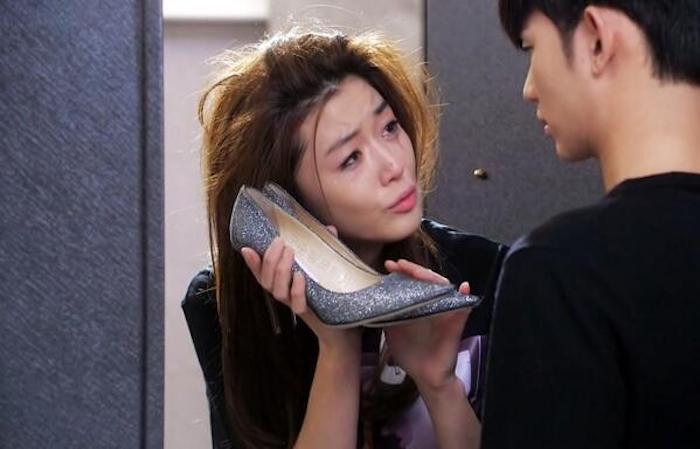
If you’ve been watching Korean dramas for any amount of time, chances are you have encountered some criticism in the shape of them being equated to “soaps.” And, if you’re anything like me, you take this as a pretty strong misinterpretation, possibly worthy of a nice juicy kimchi slap. What makes people quickly dismiss this entertainment medium as mere soap operas? How and why does the term “soap” misrepresent and misunderstand K-dramas — or, is it more applicable than we’s like to think?
While terms and genres are always open to interpretation, one thing this article will assume is that the term “soap” is a) used as a label for a particular kind of television production; and b) not a term that signifies any sort of value. In fact, we could even take it a step further and say it signifies the opposite of value — in other words, cheap drivel. The following is my completely biased look at K-dramas and the whys and hows around them being compared to soaps. (And as a bit of clarification, when I refer to K-dramas in this article, I’m talking about the primetime and miniseries-like dramas that we regularly cover here at Dramabeans.)
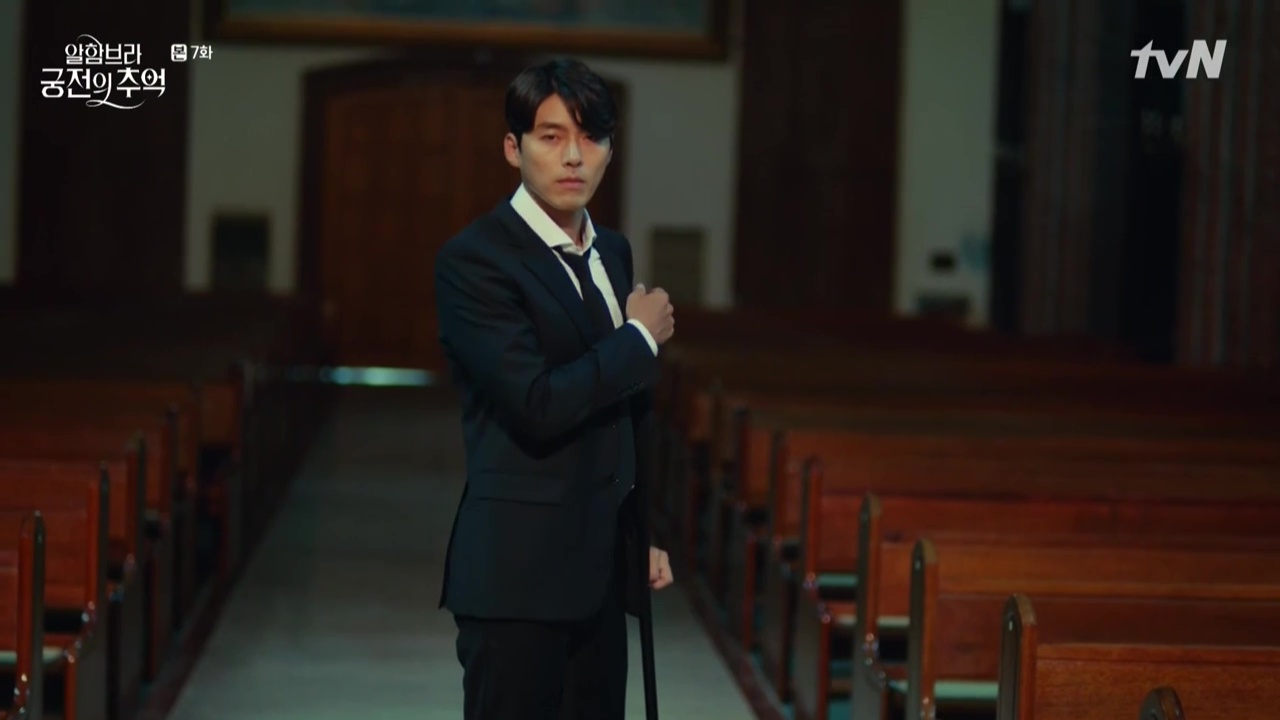
So, to start, where did the term soap come from, and how did it become the derogatory label it is today? According to the Museum of Broadcast Communications, the term “soap opera” was first coined by the American press in the 1930s. It was almost pejorative from the start, since they used the term to describe the highly popular serialized daytime radio shows that were sponsored by household cleaning products — that’s where the soap part comes in. The opera part references the fact that classical/musical operas are some of the most loud and dramatic bits of storytelling around.
With that basic definition down, we already have a starting point to compare and contrast soap operas with K-dramas. The thought of soap operas as the genesis of commercially-sponsored programming is fascinating. Sponsorship and entertainment are so closely linked today, with TV commercials every nine minutes, Spotify ads, sponsored posts on our Instagram feeds, and the like. This idea of commercial sponsorship also puts PPL in an interesting light, though I doubt this connection is what critics are thinking of when they call K-dramas soaps.
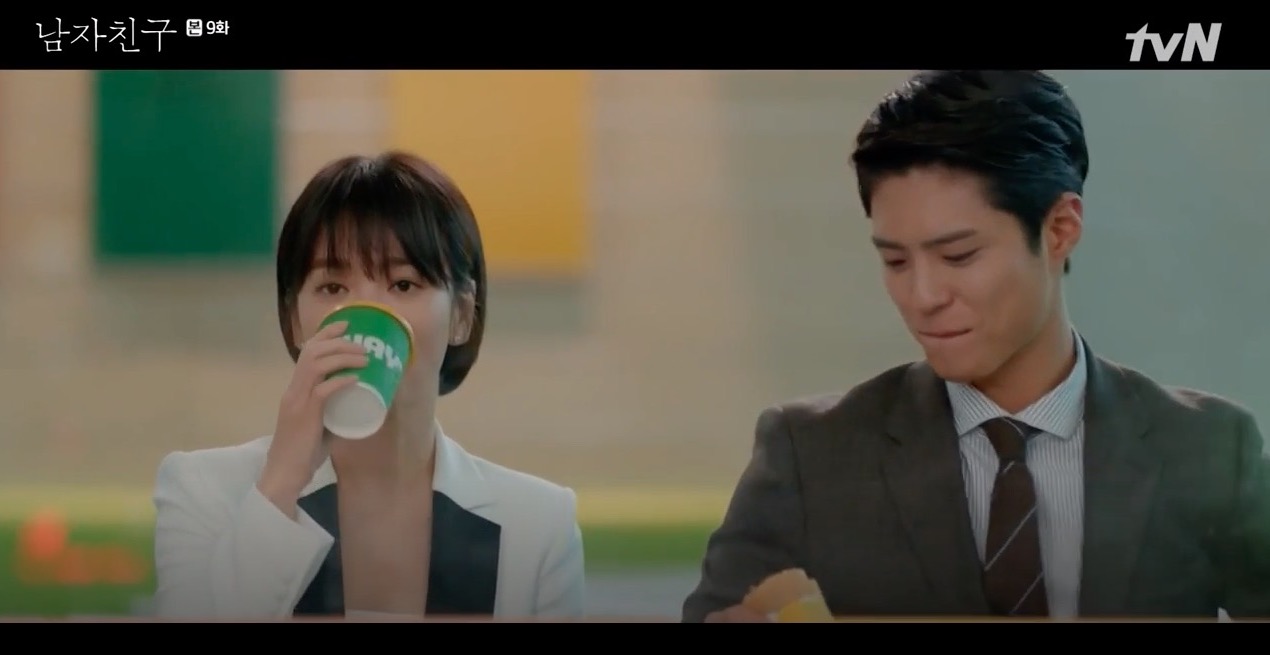
What about operas — are they anything like K-dramas? They may not be your musical taste, but you can’t deny an opera’s powerful drama, not only musically, but with the tales they tell (just read the synopses of Italian operas La Bohème or Madama Butterfly and you’ll get the picture). Operas are enjoyed as both a musical genre and an era in musical composition. I like to think of them as one example that high drama can not only be delicious, but be an important and respected part of storytelling history.
Let’s get back to the evolution of soap operas. As radio programming died away and the age of the television came into being, the term soap opera came to refer to a specific genre of America TV: serialized daytime programming. Early in the innocent days of television, these soap operas were, according to Encyclopedia Britannica, simple stories where “sin and violence, always offstage, frequently affected the daily lives of the family members, but good inevitably triumphed, or at least all wrongdoing was justly punished.”
As soon as the 1970s hit, soap opera content began to shift and more openly contained storylines around drug abuse, domestic abuse, love affairs and/or promiscuity, violence, and crime. These kinds of rough and cheap stories are how we think of soap operas as a genre today: lowbrow stories that rely on sentimentality and sensationalism. As the Museum of Broadcast Communications puts it, to call a film, novel, or other cultural production a soap opera is, “to label it as culturally and aesthetically inconsequential and unworthy. ”
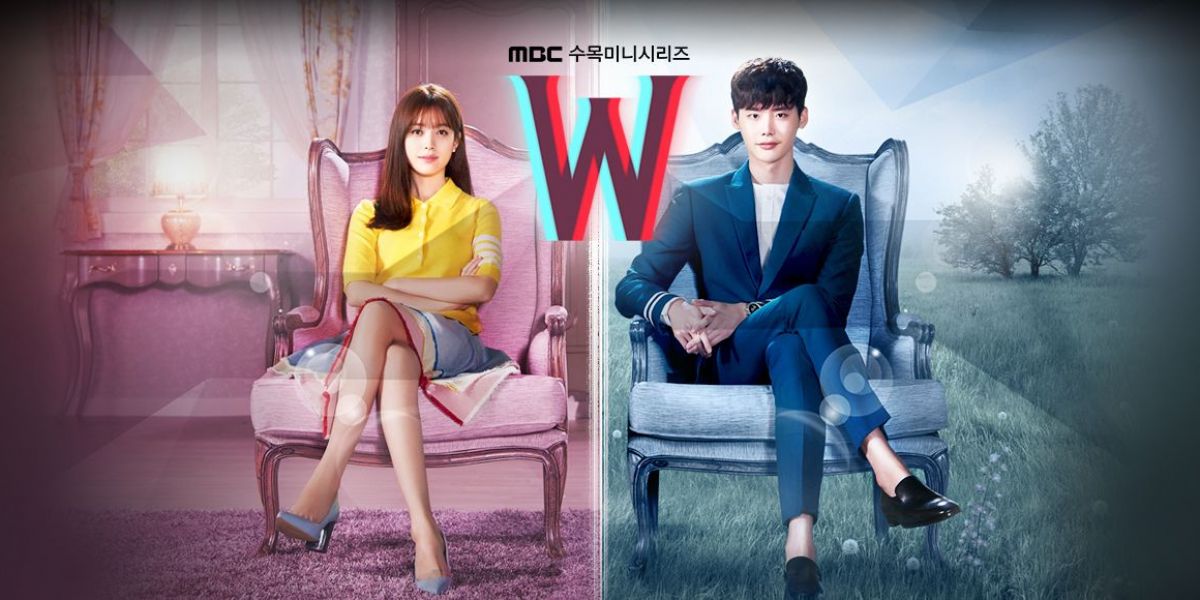
While K-dramas couldn’t be more different in how they handle content, there are some interesting parallels in the history of soaps operas that I honestly didn’t expect to find. Didn’t the description of early WWII-era soap operas sound a bit like the K-drama world we know and love today? The idea of a genre that tells simple and rather innocent stories of heroes and heroines triumphing over odds and obstacles is actually a pretty good description of K-dramas from a bird’s eye view. It’s also one of the elements of K-dramas that I cherish the most.
Does a simple good-versus-evil story with a somewhat predictable structure make K-dramas equivalent to soap operas? Unworthy? Inconsequential? Not to me, since when we use the term soap opera as a descriptor today, it references soap operas after they shifted content and storytelling methods. Calling something a soap opera today is more like calling something “makjang” in the world of Korean programming: crass, lacking in quality (in storytelling and production), and a bit on the trashy side. This is where I see the strongest contradiction between modern-day soap operas and K-dramas. Our primetime K-dramas may at times be cheesy and light-hearted, but they’re never cheap or base.
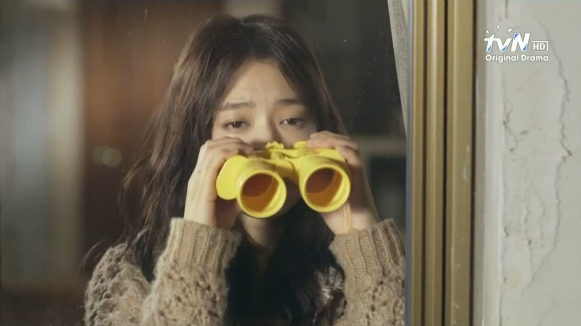
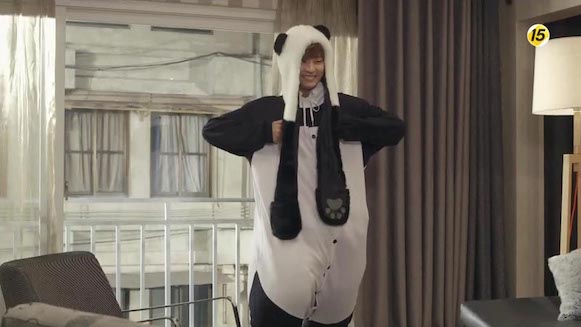
As we’ve seen, K-dramas have quite a bit in common with the kinds of stories early soap operas commonly told. But are there any similarities in how these two genres operate technically? Here’s what the Museum of Broadcast Communications has to say about how soap operas traditionally tell their stories:
“The defining quality of the soap opera form is its seriality… Unlike episodic television programs, in which there is no narrative linkage between episodes and each episode tells a more or less self-contained story, the viewer’s understanding of and pleasure in any given serial installment is predicated, to some degree, upon his or her knowledge of what has happened in previous episodes.”
That sounds awfully like a K-drama to me — and not only that, but it’s another of my favorite things about them. Episodic, stand-alone stories in television or elsewhere have rarely interested me. But K-dramas? A continuous narrative is at the core of how they tell stories.
Continuous narratives are stories with plot lines that advance, characters that develop, and story arcs that ebb and flow — these things are crucial to a strong narrative. And after all, going on a journey with a character — whether they’re doing anything from falling in love, to looking for a full-time job, to playing AR video games — is a huge part of the pleasure of a story.
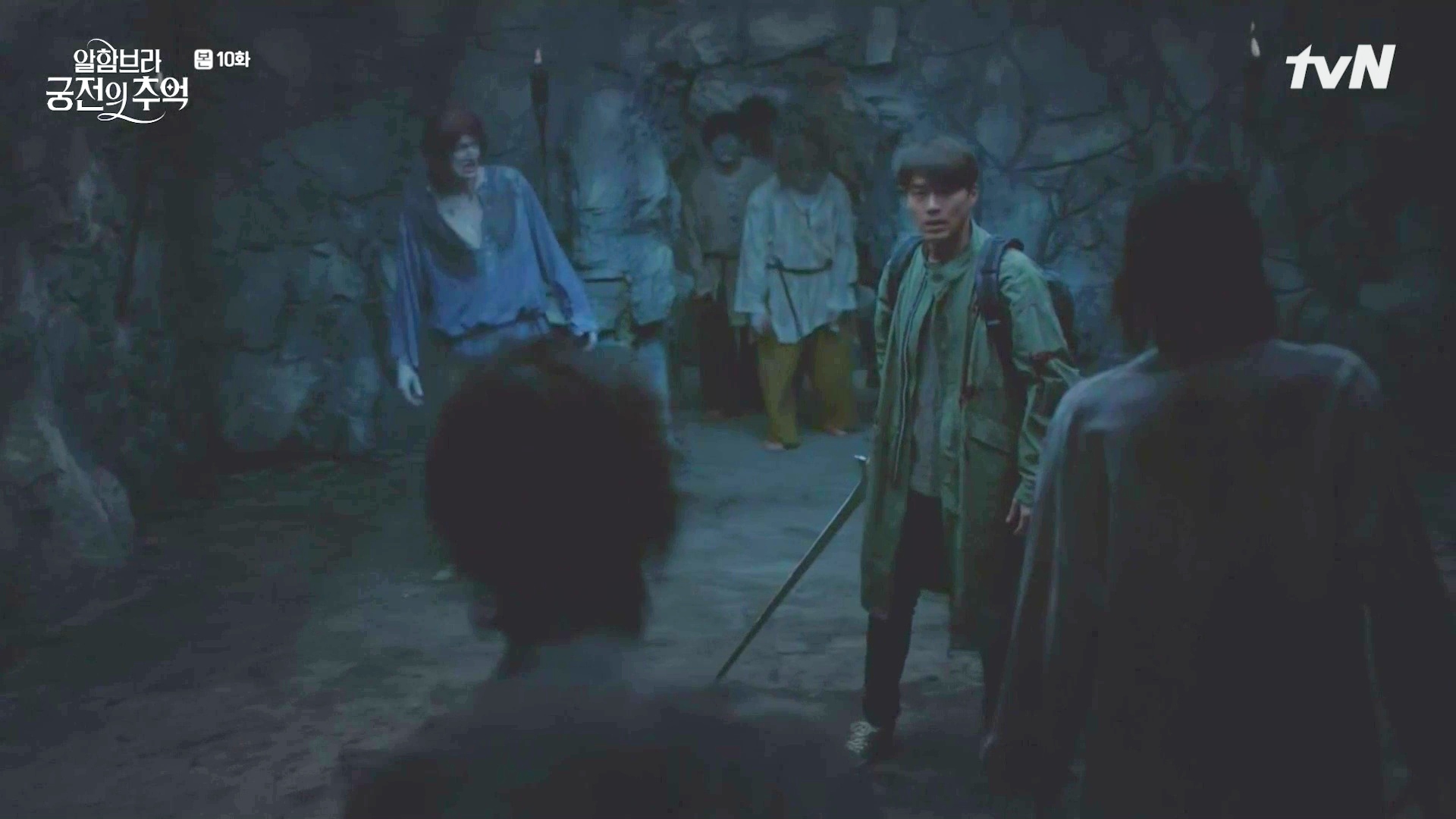
While K-dramas and soap operas may be similar in that they are serialized or continuous stories, they are actually quite different in how they tell their stories. Sometimes, the difference between two genres is not the story itself, but how the story is told. In other words, how a story is rendered through things like direction, production quality, editing, and scriptwriting can determine its quality.
Take these one-sentence blurbs for example: a cold, emotionally-removed woman falls in love with a free-spirited younger man. A young, emotionally-scarred woman is encouraged to love again when she encounters a new neighbor. A haunted man falls in love with a woman he doesn’t know is his niece.
Based on these write-ups alone, these shows can sound pretty soapy and awful. And, given a certain execution, they very well could be. Instead, we have dramas like Boyfriend, Flower Boy Next Door, and Nine. From a contemplative story about freedom of spirit, to a quirky wholesome rom-com, to a harrowing time-travel story where the hero destroys his own future — each of these are very different kinds of stories. And none of them soap operas.
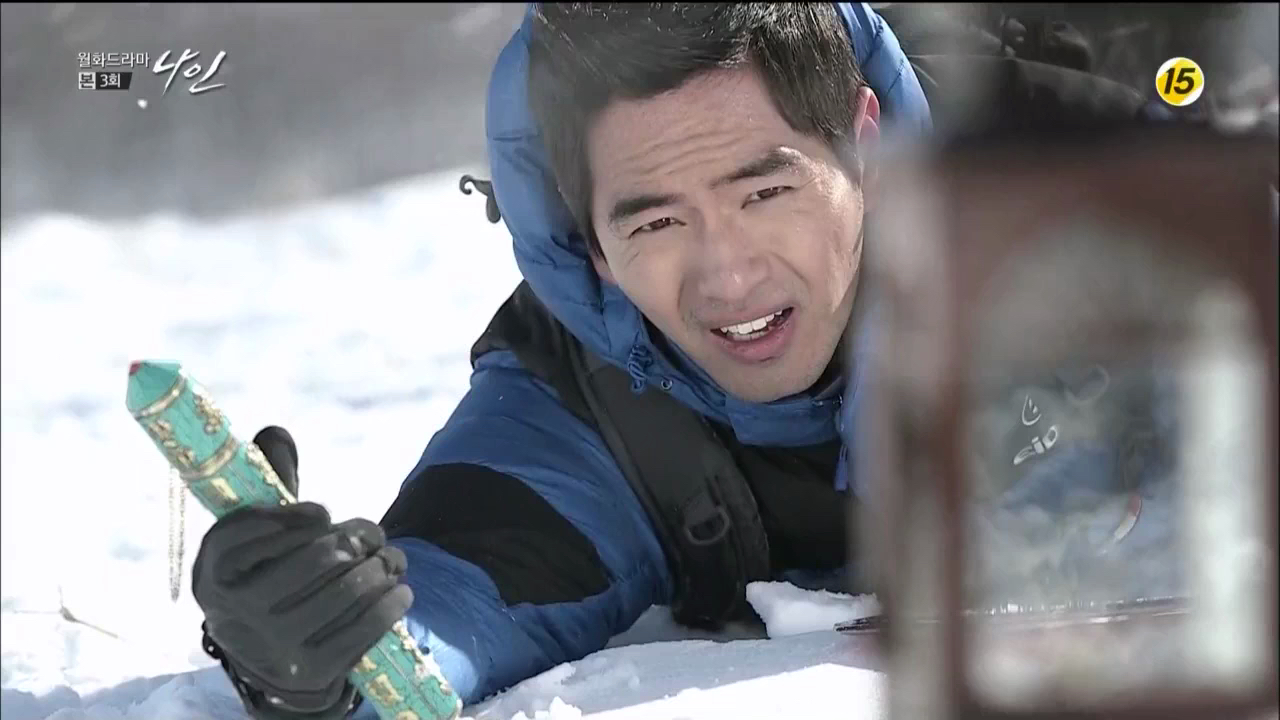
The term “soap opera” as a descriptor for K-dramas, I think, has a lot to do with misunderstanding. People outside of the K-drama culture often don’t know how to interpret the genre when they hear the storyline, or catch a glimpse of some high drama moments. Smash hit You From Another Star is the perfect example. Its huge popularity and impact on the consumer market spurred articles in the American media, and it’s interesting to see how they talked about Korean dramas.
In The Wall Street Journal, the show is quickly referred to as “a new Korean soap opera,” and The New York Times curtly explains the drama as “a South Korean television show about a 400-year-old Harvard-educated alien who falls in love with an arrogant actress.” Technically that’s accurate, but it doesn’t really do it justice, does it?
The blurb from The New York Times, and the ones I wrote above, show that there’s a rather big difference between how something sounds, and what something actually is. What’s missing from the blurbs is the execution, or how the story is handled. And it’s the execution of a K-drama that elevates it from purely silly or soapy stories, into dramas that capture our hearts.
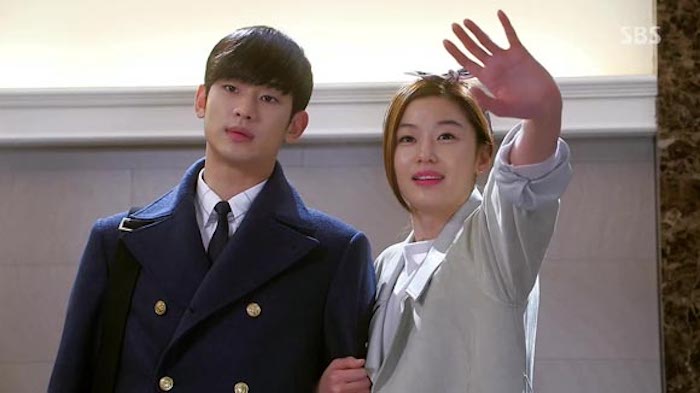
K-dramas are a storytelling medium all their own. They create rich, narrative worlds complete with their own format, rules of engagement, and storytelling devices. They know their purpose is to entertain, and rather than pretend to be something they’re not, K-dramas are absolutely and unabashedly themselves. They might be a lot of things (cheesy, tropey, predictable), but they’re always genuine. And for this, I love them.
This leads us to a final thought as we distinguish K-dramas from the soap opera label, and that’s in the culture that exists around them. This is where I think the biggest distinction lies. Daytime soaps are criticized for being the cheap entertainment of housewives who don’t realize the stories they’re glued to are considered cheap and outlandish. Whether or not that’s true, it’s nothing like the culture around K-dramas that I’ve come to know.
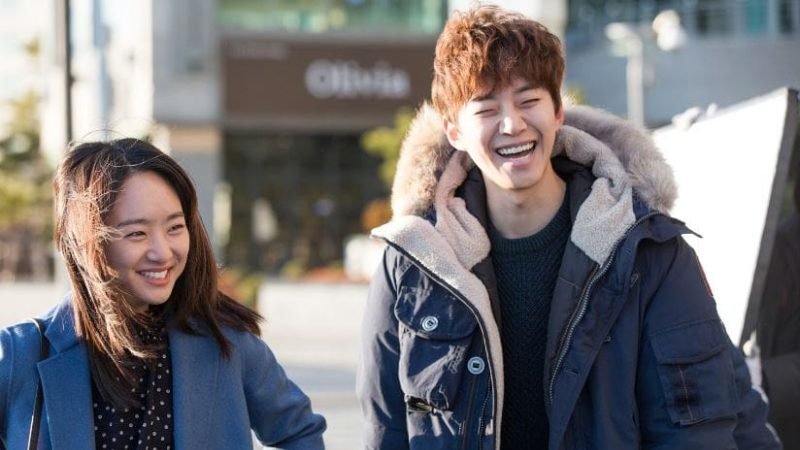
K-drama watchers might be diehard and committed fans, but they’re also some of the genre’s biggest critics — in the best sense. They’re the first to call out plot holes, eye-roll tropes, or express frustration when a story isn’t as well-handled as it promised to be. Above all, they’re people who understand the importance, value, and fun, of a rich story that pulls you into a world all its own. The term soap opera may denote a kind of uncultured ignorance, but K-drama fans are some of the most articulate and analytical fans I know, and comprise a community that manages to both deconstruct, criticize, and devour dramas.
We’ve looked at how K-dramas are perceived, how they are told, and how these things might cause people to label them as soap operas. While there are a lot of elements that they have in common, there’s also a lot that distinguishes them. Whether you see more similarities or differences after reading this article, one thing is true: all forms of storytelling have value. One kind isn’t better than another — they’re just different. Does it bother me when K-dramas are undervalued, misunderstood, and dismissed without an attempt to really understand them? Yes — but not enough to kill their magic.
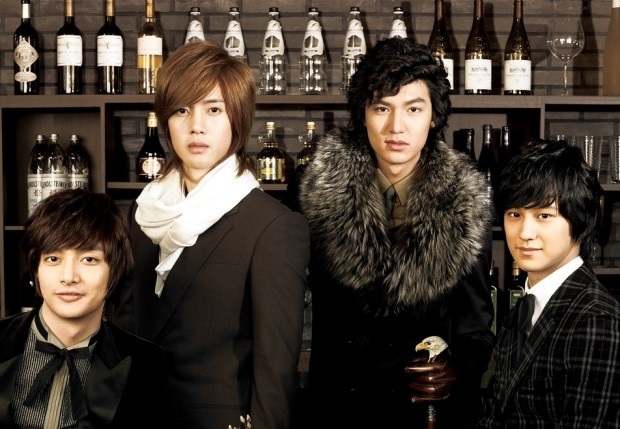
RELATED POSTS
Tags: Boyfriend, editorial, Flower Boy Next Door, Just Between Lovers, Memories of the Alhambra, Nine: Nine Time Travels, W–Two Worlds, You From Another Star
![[Beanie Review] Light Shop](https://d263ao8qih4miy.cloudfront.net/wp-content/uploads/2024/12/LightShop_reviewb.jpg)
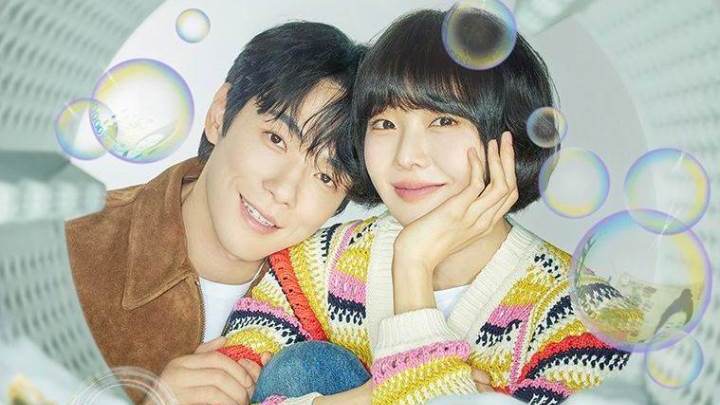







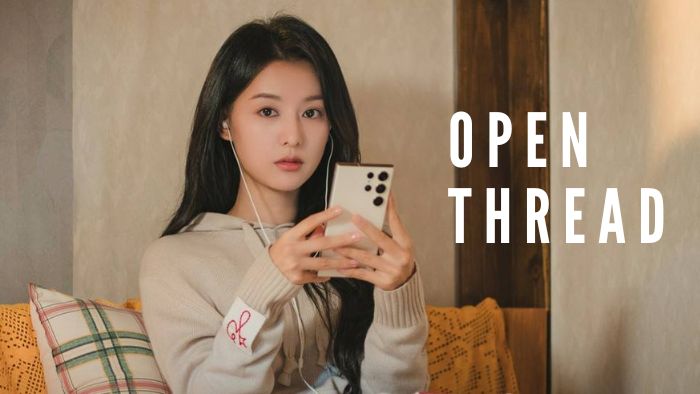
Required fields are marked *
Your email address will not be published. Required fields are marked *
1 gadis
January 16, 2019 at 11:36 PM
Reading this article reminded of how weirdly proud I am nowadays to declare myself a K-drama lover to my friends, simply because they didn't expect me to like "that kind of entertainment". It's also kind of funny how determined some of them are to label dramas like Secret Forest, Mother, or Signal as an exception when good dramas has been around longer than my measly 7 years as K-drama watcher. But we love what we love, and sometimes my unabashed love for it left them curious enough to know what's the fuss about K-dramas and turn them into a bigger fans than I am.😉
Required fields are marked *
2 Bruna
January 16, 2019 at 11:51 PM
Well, K dramas aren't soaps per se, they are more Dyson operas, cosmetics operas or any given brand of drinks, alcoholic or non. There are good dramas and bad dramas and people to belittle them too. But that is the one thing; we lump it. Ages ago, when we joined the unbeknown wagon of asian entertainment, we understood not to let demeaning comments affect us; after all to delve into the asian genre, showed at least we read, and reading gives a person critical mind. Before the asian drama wagon came along, some were suffering the same kind of dismissive comments because we watched novelas, and there were some bloody good ones amongst all kinds. You just pay as much attention to innane comments as you do to a drill on the street below.
Required fields are marked *
3 SooHa
January 16, 2019 at 11:51 PM
“a South Korean television show about a 400-year-old Harvard-educated alien who falls in love with an arrogant actress.”
Makes me wants to rerun You From Another Star :D
Required fields are marked *
drabea
November 19, 2021 at 2:11 PM
111921. I had typed this as a separate comment, but since SooHa specifically mentioned the description that irks me, I thought I would tuck it in here.
I can't overlook the article statement regarding the great You Who Came From The Stars -- my very top favorite Asian drama of all time (if by some curse, I had to pick just one):
"The New York Times curtly explains the drama as “a South Korean television show about a 400-year-old Harvard-educated alien who falls in love with an arrogant actress.”
Technically that’s accurate, ...",
That given age is all too frequently repeated, and
technically, that's NOT accurate.
Kim Soo Hyun, as currently named Do Min Joon, had been waiting for 400+ earth years, since the early 1600's, for the opportunity to return to his people.
He was already an adult when he got separated from his exploratory group and missed their departure.
Required fields are marked *
4 spazmo
January 16, 2019 at 11:56 PM
your title is what i find myself saying all the time!
i tell people Kdramas are NOT like All My Children, General Hospital and As the World Turns (yes, i'm that old)... i try to equate Kdramas to
American evening drama serials like Dynasty, St Elsewhere, Chicago Hope, Greys Anatomy....
but for the uninitiated, they like to say "So, you watch those Korean Soap Operas?"
: [
Required fields are marked *
hanib
January 17, 2019 at 12:54 AM
soo truee
Required fields are marked *
nilsche
January 17, 2019 at 1:10 AM
Next time answer: "Yes. That soap opera, included good doctor, which hollywood remade and become hit. They apparently in thinking to remade another one"
Required fields are marked *
Karmen ~ 🍜🏢🎭 ~ 📚☔🦋 ~ 🪂🌱💘 ~ ✨🍊💫 ~
January 17, 2019 at 2:19 PM
Some time ago I was reading an article on an Italian site I like surfing to get updates or advices about TV series, and one of the writer wrote that the Good doctor was a remake from a Korean drama with so much disdain that I was really surprised in a negative way.
Required fields are marked *
5 kimchiturka
January 17, 2019 at 12:01 AM
This probably goes without saying, but I am truly thrilled to see once again how much thought is being given to these kinds of cultural phenomena here at Dramabeans, and the analytic skills used to present those thoughts - great article! And great image next to the title :D
Required fields are marked *
6 RevSparklyAndroid
January 17, 2019 at 12:14 AM
This is an excellent article.
Required fields are marked *
7 thequiet1
January 17, 2019 at 12:40 AM
Where I come from (not the western part of the world), kdramas are 'disregarded' in a lump as cheesy romances, with the typical cinderella tropes where the wealthy and/or handsome heroes rescue their damsel of a heroin. So when some misinformed people, especially men, learn that i'm a kdrama fan, they will react with something along the line of, "ah, you are the kind of girl/woman who enjoy unrealistic, unattainable cheesy romance and kpop pretty boys", basically, a romantic fool with her head always in the cloud. I always wanted to give a lengthy explanation of what kdrama really is, that it's not only romance, but instead, being the introverted person i am, i just ignore them and leave them in their cave of ignorance, and enjoy dramas all to myself. but when i do stumble upon worthy ones, i'll bestow them with kdrama recommendations that will blow their minds.
Required fields are marked *
Karmen ~ 🍜🏢🎭 ~ 📚☔🦋 ~ 🪂🌱💘 ~ ✨🍊💫 ~
January 17, 2019 at 2:27 PM
I do the same. Except to my sister - that anyway mocks me - I never say what I'm watching - and loving -. Not out of shame, not at all, but I think I can use the time of a long and useless explanation to do something more pleasant.
Prejudices are hard to kill.
Required fields are marked *
thequiet1
January 20, 2019 at 10:36 PM
True, some just refused outright to listen, so why bother. their lost anyway.
Required fields are marked *
Karmen ~ 🍜🏢🎭 ~ 📚☔🦋 ~ 🪂🌱💘 ~ ✨🍊💫 ~
January 22, 2019 at 1:50 AM
@thequiet1 This! :)
Required fields are marked *
8 Moonbean
January 17, 2019 at 1:52 AM
To me the statement "Kdramas are soap operas" is as true or as false as the statement "all American [or British, or any other country for that matter] dramas are soap operas". Soap operas are one type of drama, but not every drama is a soap opera. Many countries make soap operas as well as other types of dramas.
I haven’t watched an American soap for decades but I can’t imagine the formula has changed that much. To me these are the distinguishing features of a soap:
- They air daily. The pace is quite slow, events drag on. You don’t miss much even if you tune in only occasionally.
- They are broadcast before nightly news, pre-primetime.
- They are cheaply made, shot in studios, always indoors. There are no location shoots.
- They have comparatively crappy acting, awful close-ups etc.
In contrast some primetime dramas (American, Korean or other some the countries) are cinematic quality both technically and in the level of acting and can get very expensive with even extended foreign location shoots, A level movie actors, fancy special effects. They are broadcast primetime, one-two hours/week and are fast-paced, depending on the drama you miss one week you don't know what the hell is going on.
I never watched a Korean daily, maybe they are the equivalent of soaps but to me Korean dramas are more similar to a longer version of British miniseries, they have a one season story to tell in a limited number of episodes and a good writer plans it all ahead from the beginning.
Required fields are marked *
buckdawna
January 17, 2019 at 9:04 AM
This is exactly my response, too. "Sure, Kdramas are soap operas, if you consider all tv shows in general to be soap operas." 😊
Required fields are marked *
Kafiyah Bello
January 17, 2019 at 6:50 PM
I would also venture to add that some kdramas are soapy just like some nighttime American dramas are soapy. Grey's Anatomy for example is incredibly soapy, but a show like Gotham is not. I guess its similar to some kdramas are Makjang and some are not. So Last Empress is makjang, but Signal not so much. It depends on the show.
Required fields are marked *
9 Kdramaisjjang
January 17, 2019 at 1:57 AM
My folks here don't even call it soap. It's worse because many here don't see kdrama's difference with Chinese movies and the Chinese movie they like includes Jackie Chan's, jet li's and the likes, so if you are watching drama it's likely to hear "are you still watching your chun chin chun?" (when they are trying to imitate the language).
But not to worry because many of my friends are now kdrama convert. So when someone makes fun of us we just take it in and plot our comebacks because we are so cool like that. Yay us😎!!!
Required fields are marked *
Esther
January 17, 2019 at 4:49 PM
This low-key sounds like my Naija people 😂😂😂 #chun chin chun😂
Required fields are marked *
Kdramaisjjang
January 18, 2019 at 10:37 AM
You got it right. I'm always glad to see a fellow Nigerian anywhere and everywhere. Chun chin chun indeed🤗🤗
Required fields are marked *
Esther
January 18, 2019 at 3:49 PM
Wow
Nice to meet you chingu...
Still cracking up, just at the thought of it 😂😂
Required fields are marked *
10 mano
January 17, 2019 at 2:27 AM
If there's anything I regret about my kdrama watching experience is 'why I didn't start it sooner?' 😄
I'm not going to talk about quality because I understand nothing about it. I just watch what I feel good and most kdramas make me feel content.
To me kdrama is a great companion for any occasion. I can watch drama while doing my laundry, working out, grading students homework, commuting to work. So many apps/websites to watch them. There's so little or no sex scene at all so it's safe to be watched in the public area. I can enjoy my commuting since I watch kdrama. I can give better and relatable examples in my classes because of kdramas. I can understand my family better since I learned it from kdrama.
Thank you kdrama, I don't care if you're soap operas or anything. You've given me happiness and life lessons in two years of existing in my daily life.
Required fields are marked *
11 juti
January 17, 2019 at 2:32 AM
This article was awesome. So many things are true that I kept nodding my head like "right... oh, right right".
I felt the same, especially since Netflix categorized some drama under the term "à l'eau de rose" (mushy, sappy). I was kind of vexed because this is so reductive. I particularly like when you wrote "there’s a rather big difference between how something sounds, and what something actually is" - indeed, like first impressions, you are narrow-minded, and eventually stupid, if you are not able to overcome it. In french, we have this saying that says you should not judge a book by looking only at its cover and, that's it, there is more than the apparent - maybe cheesy - storyline in a drama.
That said, I studied litterature and every story is about the same idea: an heroes overcoming difficulties and finding happiness or at least some sort of peace (of course, there are sad endings too). We talked about the actantial narrative schema here in litterature. If we think drama are soap operas because of this, then every story is bound to be one then.
Required fields are marked *
12 shinayame
January 17, 2019 at 2:43 AM
What you said about the one-liners making the shows sound strange is so true. I'm trying to get my mum to watch a K-drama with me, but every time she asks me what I'm watching Ii say something like, "a priest, a cop and a taxi driver team up to kill a demon" or "a policeman talks to a policeman from the past with an old radio" or "a male housekeeper helps a girl clean her house" and she just rolls her eyes and goes back to the show she's watching where a woman's ex-husband shows up six years later with his daughter by her best friend and she tries to keep him from finding out that he's her daughter's father.
I think I'll win her over if I can convince her subtitles aren't the devil.
Required fields are marked *
Possum
January 17, 2019 at 3:43 AM
I nearly didn’t watch Memories of the Alhambra because of the one line description. So glad I saw some beanies reactions and decided to give ita try.
Required fields are marked *
13 Jamie Opso
January 17, 2019 at 2:52 AM
Thank you, missvictrix! This was a well-thought-out and enjoyable essay.
I would add that k dramas, unlike American soaps, have a defined narrative arc, and end after a preplanned and limited number of episodes (16, 20, etc.). I really appreciate that, and think it usually helps the quality of the story - any story - to have a defined beginning, middle, and end.
It's the endlessness of American soaps that stand out to me: many went on for years, decades even, until falling ratings caused some to shut down for good.
I think the endlessness of American soaps helped many fans to feel like the characters were part of their own lives, so I could see how that would be enjoyable; but it also caused some of criticisms of story-telling quality of the soaps (i.e. boring, convoluted, ridiculous plot twists, senselessness) in the first place.
Required fields are marked *
Ally
January 17, 2019 at 7:35 AM
I grew up on the golden age of soaps, the 80’s, where General Hospital ruled daytime and Luke and Laura was the greatest love story on air. It permeated our lives to the point that I remember stealing away from a pizza party in elementary school with my friends to talk about our favorite characters and the finer points about their personalities (lol). They were not relagated to just tabloid talk, but their fictional wedding was on mainstream news sites and the actors that personified them were interviewed in popular magazines. We cared about these people like they were our family. Kdramas tap into that same emotional connection and in that way are similar to these stories. However, the acting, cinematic quality, storytelling, and just beauty are more developed and far above your average soap opera. I likened it to reading a good novel on the plane to LA last week, in whatever genre you enjoy. It’s not all romance either. I told the woman that I used to be an avid reading until I found kdramas, and now I just see the stories unfold in front of me and get my reading fix by reading subtitles! She said that’s as high a praise of kdramas as she’s ever heard (and she’s a book editor).
Required fields are marked *
bbstl 🧹
January 17, 2019 at 1:19 PM
I love this! Good job on spreading the word, Ally!
Required fields are marked *
spazmo
January 17, 2019 at 1:43 PM
yeah, i was consuming 2 softback novels per week (Barnes & Noble loved me) before discovering Kdramas...
reading was getting expensive as i would read a novel in 1-2 days easily. so watching Kdramas online, then later J and Taiwanese dramas also, saved me money!
: D
and, umm, no... i wasn't using the free library system much, mainly because i didn't like the long wait for popular books. but these days, our libraries have Peak Picks -- which does not allow holds and you have to be lucky to see it on the shelf to be able to check it out for only 2 weeks (so more people can have access).
it has prompted me to walk the 1.8 miles (one-way) to the library to check for titles a couple times a week! but, umm, no... i haven't lost weight yet.
: (
Required fields are marked *
Karmen ~ 🍜🏢🎭 ~ 📚☔🦋 ~ 🪂🌱💘 ~ ✨🍊💫 ~
January 17, 2019 at 2:47 PM
So, I'm not the one. I am relieved. I'm always been an avid reader (the type: "What will we buy to Carmen as a present? A book, of course!"), but last year I was in book slump (mostly because of my obstinacy to finish The lord of the rings) and at the same time I discovered K-dramas. Result: the number of books I have read from then has considerably collapsed.
I wondered if I had to worry, but now I think that we have to do what makes we feel well, and not something else only because we always did it.
Required fields are marked *
Ally
January 17, 2019 at 3:04 PM
So now the answer to “What shall we buy Carmen as a present?” Should be a VIKI, ONDEMANDKOREA, or NETLIX subscription!
Required fields are marked *
Karmen ~ 🍜🏢🎭 ~ 📚☔🦋 ~ 🪂🌱💘 ~ ✨🍊💫 ~
January 17, 2019 at 3:17 PM
Hahahahha, exactly!!!
Madkdr
January 17, 2019 at 5:41 PM
Ooh me too!! My book devouring has dropped considerably and no, I didn't lose weight either!😂
Required fields are marked *
14 myheartisomg
January 17, 2019 at 3:08 AM
"There’s no absolute standard for entertainment; anything that makes me feel and react is something to be valued." - a quote from @javabeans that has always stayed with me.
Required fields are marked *
keiru
January 17, 2019 at 5:10 AM
Woow~ that's a good quote 😮😄👍
Required fields are marked *
15 WishfulToki
January 17, 2019 at 4:32 AM
Very interesting article. I think there are all kinds of kdramas- some veer more towards soap opera or telenovelaterritory and others don’t.
Lol, how true is it that it’s difficult to sum up a drama in one line? They often sound ridiculous: “Guy gets kicked out of school so comes back 9 years later to get his revenge.”
But if you add the genre and a few adjectives it sounds better, maybe: “Romantic comedy about a loving and simple guy who gets kicked out of school and comes back 9 years later to get his revenge.”
Ok, maybe it still sounds ridiculous. Oh well. 😂
Required fields are marked *
Ally
January 17, 2019 at 5:24 AM
But this might work: Expelled school slacker wrongly accused of manslaughter returns to his high school 9 years later to exact revenge on the school system that failed him, his accuser (now a school administrator) and the high school sweetheart (who is now the school counselor/teacher) who doubted his innocence.
Required fields are marked *
Ally
January 17, 2019 at 12:32 PM
*attemped manslaughter/murder. I still have to tweak this summary. I should put that it’s a rom- com somewhere too. (Wow, this is harder than I realized!)
Required fields are marked *
WishfulToki
January 17, 2019 at 1:09 PM
Exactly my problem 😂
Required fields are marked *
Madkdr
January 17, 2019 at 5:49 PM
wrongly accused of manslaughter an expelled school slacker returns to school 9 years later to face his accuser who is now the school administrator and finds romance rekindled with his high school sweetheart who doubted his innocence and turned her back on him which derails his thoughts on exacting revenge.
Sigh. It is difficult!!
Required fields are marked *
Madkdr
January 17, 2019 at 5:45 PM
This should be a new game on Beanies - write a one line summary of dramas that would not come off sounding like a soap opera but makes it interesting enough to want to click play!
Required fields are marked *
JillofAllTrades
February 28, 2019 at 4:44 AM
As a professional writer for such content, who needs to do initial pitch with something called "Logline", I can sympathize. Imagine being a writer who need to send first pitch which looks like this? :-D (All the work in put in making those character profiles, synopses, story boards, and screenplay can be dismissed because of that one line.
"Life, don't talk to me about life."
Required fields are marked *
16 Sa
January 17, 2019 at 4:54 AM
Going to share this on my non stan twitter account :D
Required fields are marked *
17 Wag-a-muffin
January 17, 2019 at 5:21 AM
Thank you for writing this! One difference between them is that K-Dramas have a beginning and an ending. Soaps go on for years (some decades, even.) Many times they have no resolution. But (the most important difference for me) I have never watched an entire soap opera. But I have watched many K-Dramas, from beginning to end.
Required fields are marked *
Altairi
January 29, 2019 at 10:52 AM
That's actually also the first thing I thought about when thinking of differences between K-Dramas and soap operas. Somewhere in between them, I would also place latino Telenovelas, that, while having definite beginning and ending points, do go on for quite a bit longer than the typical K-Dramas. I think, that is actually what makes the most difference.
When a writer starts writing the script for a K-drama, they do have at least an idea of an outline, and an ending they are working towards. A writer for a soap opera only needs an initial conflict or a few, and from there on, they just keep on spinning the tale on and on, adding to the existing storyline to keep the story going, without any definite direction in which to go, since they need to keep adding on to the story just to keep it alive. That's one thing I love about K-Dramas, actually. When I start watching one, even if I happen to watch one while it is still running in Korea, and thus, more often than not, also still at least partially in production, I do know that there is an end resolution coming.
Required fields are marked *
18 egads
January 17, 2019 at 6:14 AM
At the heart of the derision now embedded in the term soap opera is the idea that these shows have little intellectual value. They are often repetitive with familiar plot lines, themes, and stock characters. On the other hand, sports, which are also repetitive, what with their rules and all, also have familiar plot lines and stock characters, but yet are not met with the same sneer. Why? Because when something is made for and marketed to the female persuasion it suddenly becomes less culturally and intellectually valuable.
I agree kdramas are not soap operas, but like romance novels, chicklit, as well as other forms of entertainment and craft enjoyed mostly by women they are almost automatically dismissed as frivolous, even a waste of time. Sure, they are not all high art, but then I don't want them to be. Sometimes what you need is simple, cheesy, and familiar, and I will never apologize for that. And why should I? Isn't a baseball game with it's parameters of innings and outs and such, just as simple and familiar at its base? And just like sport fans, kdrama fans are passionate, critical, and as @missvictrix says, smart. Some of the most in-depth critical analysis I read comes from this very site. I'm a student of literature, I read and participate in analysis every day, and you all have cultural and historical insights that often surpass what I encounter in class. So when people dismiss kdrama and kdrama fans with a wave, I know they are wrong, and worse, they are missing out.
Required fields are marked *
bbstl 🧹
January 17, 2019 at 12:52 PM
WOOOT! And take THAT, sports fans 😜!
Required fields are marked *
larelle79
January 17, 2019 at 1:12 PM
Agree about the smarties @egads. This site is a perfect representation of that.
I had to stop going over the Soompi because that site, for real, reads and is conducted like a group of 16 years just got their parents credit card number to create a website. And the commenters are no better.
Required fields are marked *
UrsulaX
January 17, 2019 at 8:37 PM
Comment was deleted
Required fields are marked *
UrsulaX
January 17, 2019 at 8:39 PM
Comment was deleted
Required fields are marked *
UrsulaX
January 17, 2019 at 11:10 PM
(Sorry, I deleted my earlier responses because I didn't know how to edit them.)
Sports fans have their detractors, too, including those who would label them beaufs, hooligans, drunks, etc. There are also people who object to certain sports broadcasts on principle by boycotting FIFA or condemning American football and hockey for resulting in too many brain injuries. As someone who watches both Korean dramas and sports, I find it strange to compare the two, especially since I’ve never considered sports to have an exclusively male fandom. More important, I don’t think all Korean television is marketed for women exclusively. OCN seems to be targeting a male demographic, too, while other cable networks tend to produce shows that have greater appeal to a broader international audience. I think some of the criticism of Korean dramas, including negative assessments from fans themselves, stems from limited exposure to dramas intended for a specific niche market. It’s possible the comparison to soap operas arises from the popularity of dramas that do, in fact, resemble soap operas. Regardless, it’s always good to ask which dramas contribute to a critic’s impressions.
I also want to point out that women are some of the biggest critics of content marketed for women for perpetuating problematic stereotypes and clichés. These same women may object to popular recycled romantic comedies like Boys over Flowers and Playful Kiss for romanticizing potentially dysfunctional, unequal partnerships. Does such criticism hinder enjoyment or pave the way for better Korean programming? It’s worth dismissing criticism that is inaccurate or too general. (One should not assume all Korean dramas are makjang melodramas, after all.) However, to me, fans who rebel against criticism because they wish to enjoy the pleasures of mediocrity are simply defending their own jaded misrepresentations of Korean dramas. I’m not trying to suggest you are one of those fans, but it’s hard to avoid generalizations when defending against them. Before claiming a Korean drama is not like a soap opera, I must first know which soap operas and dramas are being considered, compared, and criticized.
Required fields are marked *
catbook
January 18, 2019 at 12:33 PM
The denigration of popular entertainment that women like is a huge societal problem.
We even see it in being annoyed that dramas are compared to soap operas. Soap operas' main viewers were housewives. So if we feel stung that dramas are called soap operas, what do we really think of housewives?
Required fields are marked *
UrsulaX
January 18, 2019 at 5:51 PM
As mentioned above, soap operas were originally produced to sell products made by companies like Procter & Gamble. P&G sponsored a number of TV soaps, including Guiding Light and As the World Turns. Soap operas are denigrated because they reflect producers who care less about the programming than the products they're advertising, so the programming basically exists to keep viewers addicted to daily television for advertising purposes. One might actually see that as a societal problem, but the point is that soap operas are a form of cheaply produced entertainment in which the commercial breaks are more important to the producers than the entertainment itself. Of course, this could be said of all shows on network television, but I think that's why public television, cable, streaming programs, and all other television that is not dependent on advertising tends to be better. Even then, you still have issues with product placement. For example, some of the reviewers here joked that one recent scene in Memories of Alhambra seemed to exist to promote makeup and coffee, which is sadly probably true.
Criticizing the way corporations affect programming quality is not a disservice to housewives or anyone else who likes soap operas. To be fair, housewives were given limited network daytime programming options to begin with, so their tastes have been dictated by what producers are selling. Why would it be disrespectful to them if you actually think a show they watch is derivative? That almost seems condescending, as if out of respect for them, one must like the programs they watch.
It's also wrong to claim programming for women is always denigrated. There are a number of critically acclaimed shows that tend to target female viewers, including Downton Abbey, Pride & Prejudice, The Handmaid's Tale, Outlander, and anything on Masterpiece Theater. I seriously doubt the same critics who praise these shows would dismiss Chinese period dramas like Empresses in the Palace or The Story of Ming Lan, which are classy productions if nothing else. Similarly, they would probably respect anything by director An Pan-Seok (Secret Affair, Something in the Rain, Heard is Through the Grapevine). Perhaps you would still claim soap operas were being denigrated for being too lowbrow, but I would argue it's about good storytelling. Does the show exist to tell a story, reveal a theme, or portray human existence in a meaningful way, or does it simply exist to attract potential consumers? That, to me, is the basis of the critique. Soap operas do actually feature good storytelling on occasion, but the endless serial format, the pressure to produce content daily, and cheap production work against them.
Required fields are marked *
SubwaySandwiches
March 12, 2024 at 2:41 PM
The sports comparison makes no sense. Plot lines and stock characters in sports? What are you smoking?
Action movies are a better comparison if your point is that they're familiar and repetitive.
Required fields are marked *
19 bong-soo
January 17, 2019 at 6:38 AM
Very nice @missvictrix. Actually as I was reading I thought maybe you were settling us up for the conclusion that the kdrama world and soap opera world are closer than we think. I agree we you that the two are not the same.
Thinking back to my youth I used to watch one gothic American soap in the afternoon after school and that was DARK SHADOWS with the late, great Jonathan Frid.
Required fields are marked *
20 welh
January 17, 2019 at 6:46 AM
There will always be comparisons between soaps and dramas because they both share elements of basic story telling. Historically, the first American soap operas were serialized, long term, ensemble character driven dramas. They were broadcast live which meant the actors had to have theater backgrounds and the ability to memorize new scripts on a daily basis. Likewise, in current K-dramas, we have heard stories of harsh production schedules and script changes as the series is being shot.
Both follow a serialization format, but soaps last more than one season and plots are slower to develop. In some respects, K-dramas follow more regular American night time episodic dramas where there is a secondary conflict in each episode which gets some resolution, but the larger overriding story conflict continues through to the end of the show.
Required fields are marked *
21 sorrynotsorry
January 17, 2019 at 8:02 AM
For me, the standard k-dramas are simply limited episode tv shows. However, SOME but not all wkend family dramas/daily dramas are soapier so to speak and this is true not only in the stories they tell but often times a more limited production value. Many of these shows do not get licensed. Regardless, I like what I like and see no reason to apologize for it other than to say I do have a guilty pleasure/so-bad-it's-good type drama come around every once in a while but this is true for Western entertainment as well.
However, I believe it's Netflix that has a section that they call "soapy Asian dramas" that irks me.
Required fields are marked *
bbstl 🧹
January 17, 2019 at 12:58 PM
Yes, I hate that section heading and even more I hate English-language articles about kdrama that purport to be serious and yet still refer to dramas as soaps. You'll see this in the New York Times, New Yorker, CNN and all kinds of sources who should know better. It makes me so 😤🤦🏻♀️
Required fields are marked *
22 Trinity 🍆
January 17, 2019 at 8:20 AM
I think it's also the name. When I tell people I watch kdramas I think they latch onto the 'drama' part of the name and makes assumptions that the drama means soaps. I have started telling people I enjoy Korean TV (or Asian TV) and it seems to have stopped that assumption that they are soaps. But like others, I get annoyed when people assume kdramas are soap operas and have to explain they are nothing like that (atleast the ones I watch, because, let's be honest, some of those weekend dramas are basically soap operas).
Required fields are marked *
buckdawna
January 17, 2019 at 9:15 AM
That's a good point. I've also started phrasing it as "I like Asian shows," and I find people absorb that better than "Kdrama". (Also, it would be complicated to list all the types I like. K, C, J, T-drama is just too wordy!)
Required fields are marked *
SubwaySandwiches
March 12, 2024 at 2:49 PM
It doesn't help that most of the popular k-dramas are indeed soap operas. Millennials grew up with their parents watching Stairway to Heaven and Winter Sonata. Then Millennials came of age during the era of Boys over Flowers and The Heirs and what not, shows that many people now agree was a hot mess in retrospect.
Required fields are marked *
23 javinne
January 17, 2019 at 10:58 AM
To call soup opera a K-drama (even one that is really bad) is an insult. 😂😂😂
I come from Latin America. Our soaps are pathetic. Like... really really pathetic. Most of them, if not all of them.
One exception, maybe, could be "the ugly betty" (yo soy Betty, la fea -in Spanish-), from where so many adaptations have been made, and yet, that soup failed in which it was dragged too much and too long, unnecessarily.
Required fields are marked *
Karmen ~ 🍜🏢🎭 ~ 📚☔🦋 ~ 🪂🌱💘 ~ ✨🍊💫 ~
January 17, 2019 at 2:55 PM
I loved Betty la fea!!
Required fields are marked *
javinne
January 18, 2019 at 5:04 AM
I liked it too when it came out... But a year ago I tried to watch it and I couldn't, except for few episodes or parts.
Required fields are marked *
Karmen ~ 🍜🏢🎭 ~ 📚☔🦋 ~ 🪂🌱💘 ~ ✨🍊💫 ~
January 18, 2019 at 9:18 AM
Probably it would be the same for me, I watched it many years ago.
Required fields are marked *
24 Yellowfruit
January 17, 2019 at 11:06 AM
Kdramas for me is like watching a 15/16hour movie over a series of days. Soaps don't provide the beginning, middle and ending of a story and plot as neatly as a kdrama. I am one of the last people to ever be addicted to anything but Kdramas have that "some" thing that is so unique
Required fields are marked *
Melanie
January 17, 2019 at 2:56 PM
I've also felt like watching k-dramas was like watching a long movie. Usually a really good, really long movie.
Required fields are marked *
25 bbstl 🧹
January 17, 2019 at 1:16 PM
Gosh, I've come to detest the word "soap" and nearly bite off the heads of those who ask, "so are you still watching your Korean soaps?" while I shout back, "DRAMAS!" I try to explain that they're the same as any BBC or HBO miniseries, or a memorable production like Roots and feel like watching a very long, multi-part film. Most people at least now ask about my "Korean shows" LOL.
But I admit that back in 2005 when I initiated my first web search for more after seeing Hotelier, Phoenix and Rooftop Room Cat, I googled for "Korean soap operas" 😂
Required fields are marked *
26 Karmen ~ 🍜🏢🎭 ~ 📚☔🦋 ~ 🪂🌱💘 ~ ✨🍊💫 ~
January 17, 2019 at 2:11 PM
Thanks for the interesting and accurate article!
Basing on my brief experience (less than an year), I can say that people tend to judge K-dramas badly only because... they're K-drama, I mean, without watching a single episode.
I have devoured TV series for at least 15 years, mostly American, and it wasn't something to talk about. But now that I'm devouring K-dramas, I'm odd, according to people surrounding me.
Required fields are marked *
27 crazyjason
January 17, 2019 at 2:14 PM
I believe we need to change their name to "Subway Operas" considering this pervasive omnipotent sponsor.
Required fields are marked *
28 DMVGatorGirl
January 17, 2019 at 2:30 PM
The term "soap opera" actually came about because early shows were sponsored by soap companies who were targeting housewives since they were the ones who were listening (in the beginning they were on the radio) and then watching since they were home during the day. Now the opera part I get because of the amount of drama involved in an opera, but anywhoo...
I call them my "shows". I grew up watching CBS "stories" as my Grandma would call them because I went to her house instead of nursery. I haven't watched in years, but I know if I were to go to "Y&R" right now it may take me a day or two, but I could pick right up. K-dramas and C-dramas are more nuanced than soaps and they are not serialized. But they have a beginning, middle, and usually an end (Signal, I'm looking at you). Just like most shows/genre/network, sometimes you have to defend what you love and some people will get it and some won't. You just have to find your "tribe"!!
Required fields are marked *
29 strawberry
January 17, 2019 at 4:53 PM
I grew up watching a lot of Chinese, Korean, and Taiwanese dramas. So the only format I knew was this mini-series/one that ends at a reasonable length. When I migrated to the US as a teen, the idea of "soap opera" or even primetime shows that run on for multiple seasons was so strange to me. (Looking back, I definitely had watched a few Amerian TV shows that were translated and broadcasted in my home country and was always unpleasantly surprised when they ended abruptly. In retrospect, it was probs bc of this multi-season format and which season managed to be aired. lols)
I never really thought of Kdramas as soap operas, and do get kind of annoyed when heard them being described as such. Sure, there are overused tropes and melodramatic/over-the-top tactics but there are also amazing, jaw-dropper/heart-stopping ones. I won't stop showering my love for my favorite Kdramas :D
Required fields are marked *
30 maiaeva
January 18, 2019 at 7:16 AM
I think also it takes incredible skill to be on a show that tapes every day and has new lines everyday. Actors who start out on soaps have such skills. They can memorize lines and understand character beats quicker because of the daily work they do on soaps. Underappreciated indeed.
Required fields are marked *
catbook
January 18, 2019 at 12:28 PM
Yes! A lot of American actors got their starts on soap operas. The daily regimen is good training. Paid training. And a lot of soap opera actors are theater performers too. TV pays bills.
Renee Elise Goldsberry was a soap opera actor for ages before being Angelica on Broadway.
Required fields are marked *
31 MikeyD signed up
January 18, 2019 at 8:12 PM
I had this discussing with a friend.
He labeled everything a "soap opera" if it forces you to 'feel feelings', which he apparently considered an affront. He also didn't like books that involved people 'feeling feelings'. So the 'soap opera' label isn't about the art form at all, its about closed-off people out of touch with their emotions. A joke of mine is American guys talk sports because they're afraid touching on any other topic will bring those pesky 'emotions' to the surface.
Required fields are marked *
32 Lowstki
January 19, 2019 at 1:49 PM
When I try to explain k-drama to people I usually describe them as a mix between a 16+hour rom-com and a lowbuget science fiction film. It's not accurate, but it's a much more intriguing description than "soaps".
Required fields are marked *
33 drabea
November 19, 2021 at 1:45 PM
Comment was deleted
Required fields are marked *